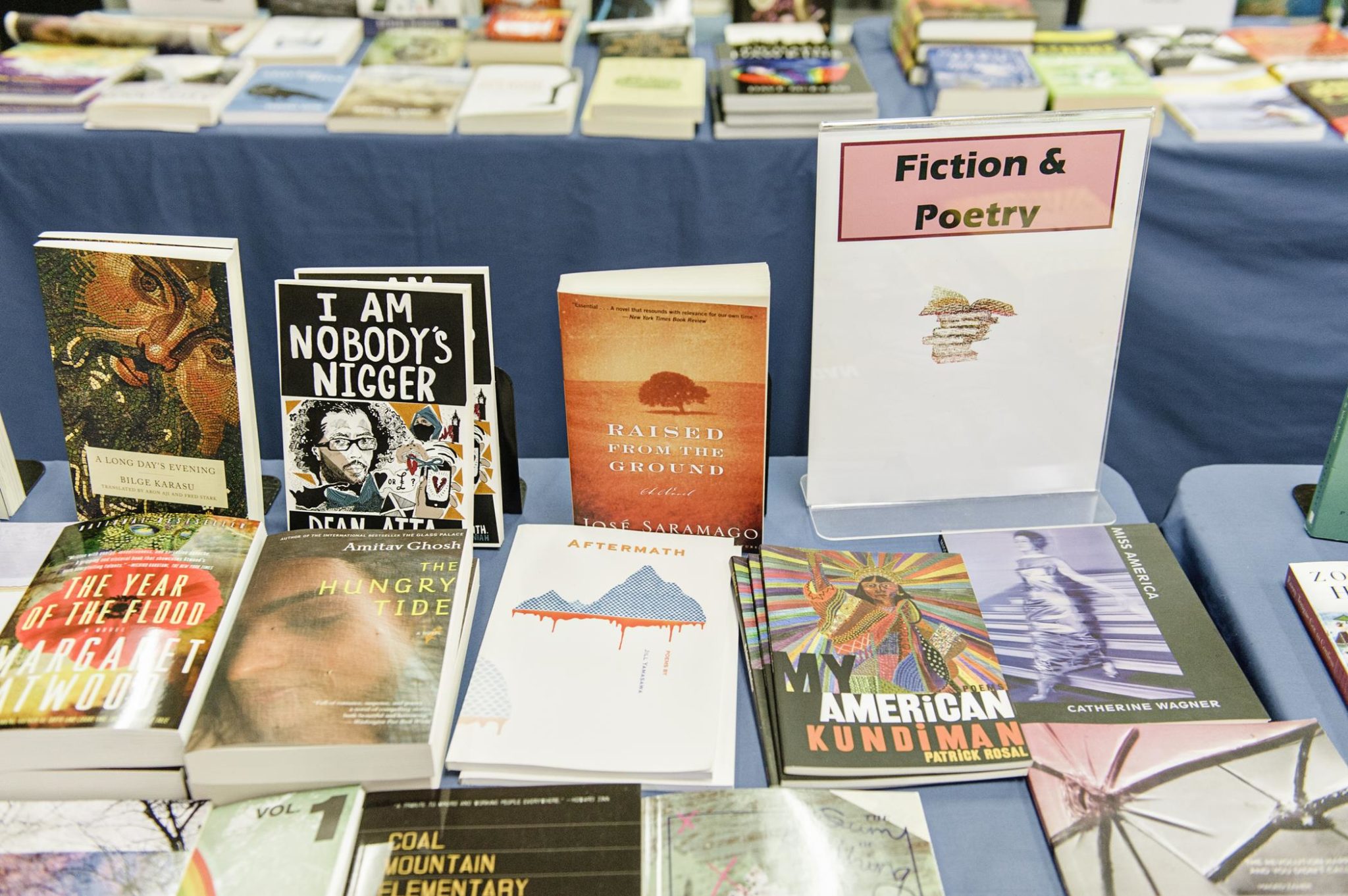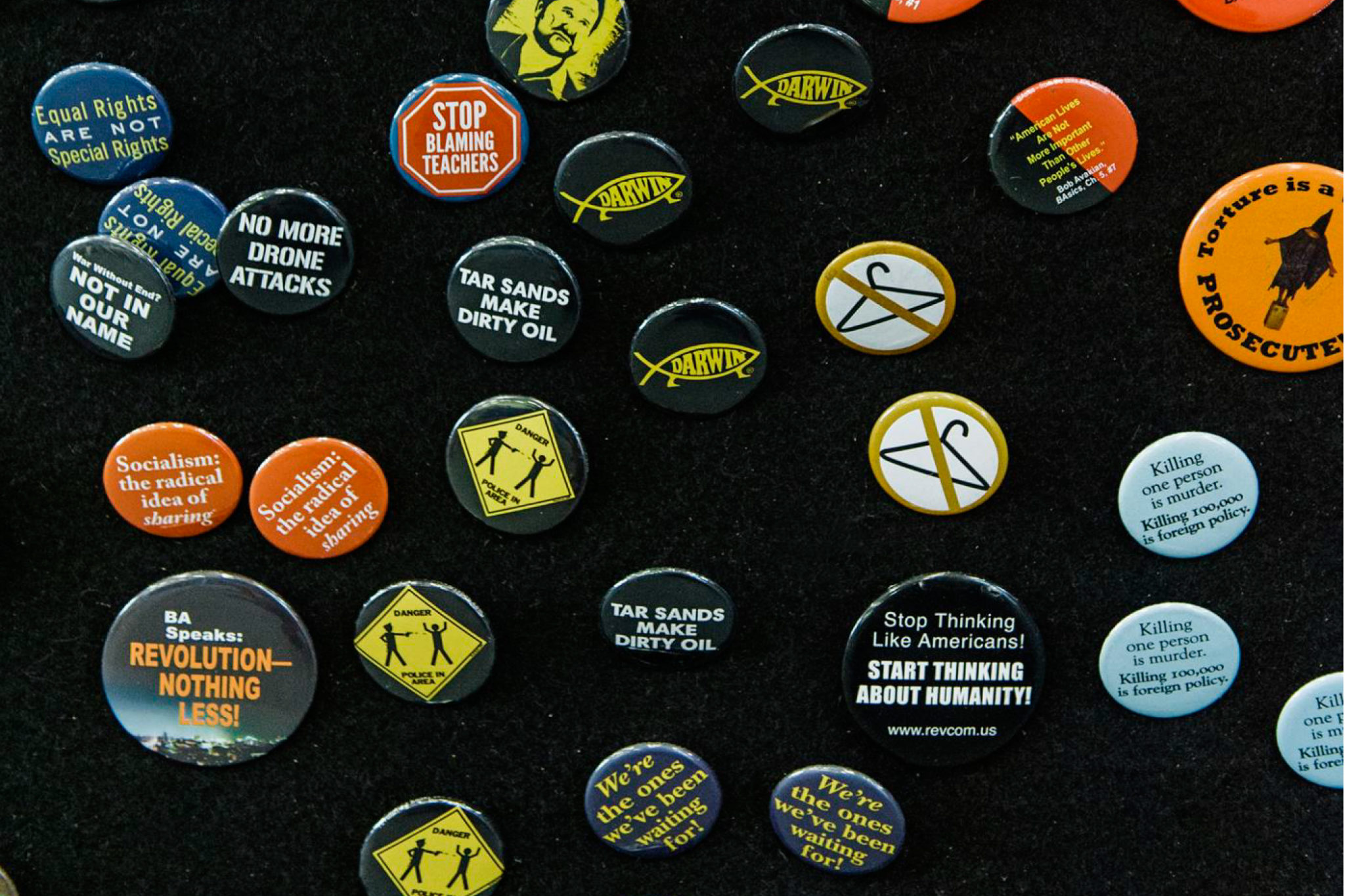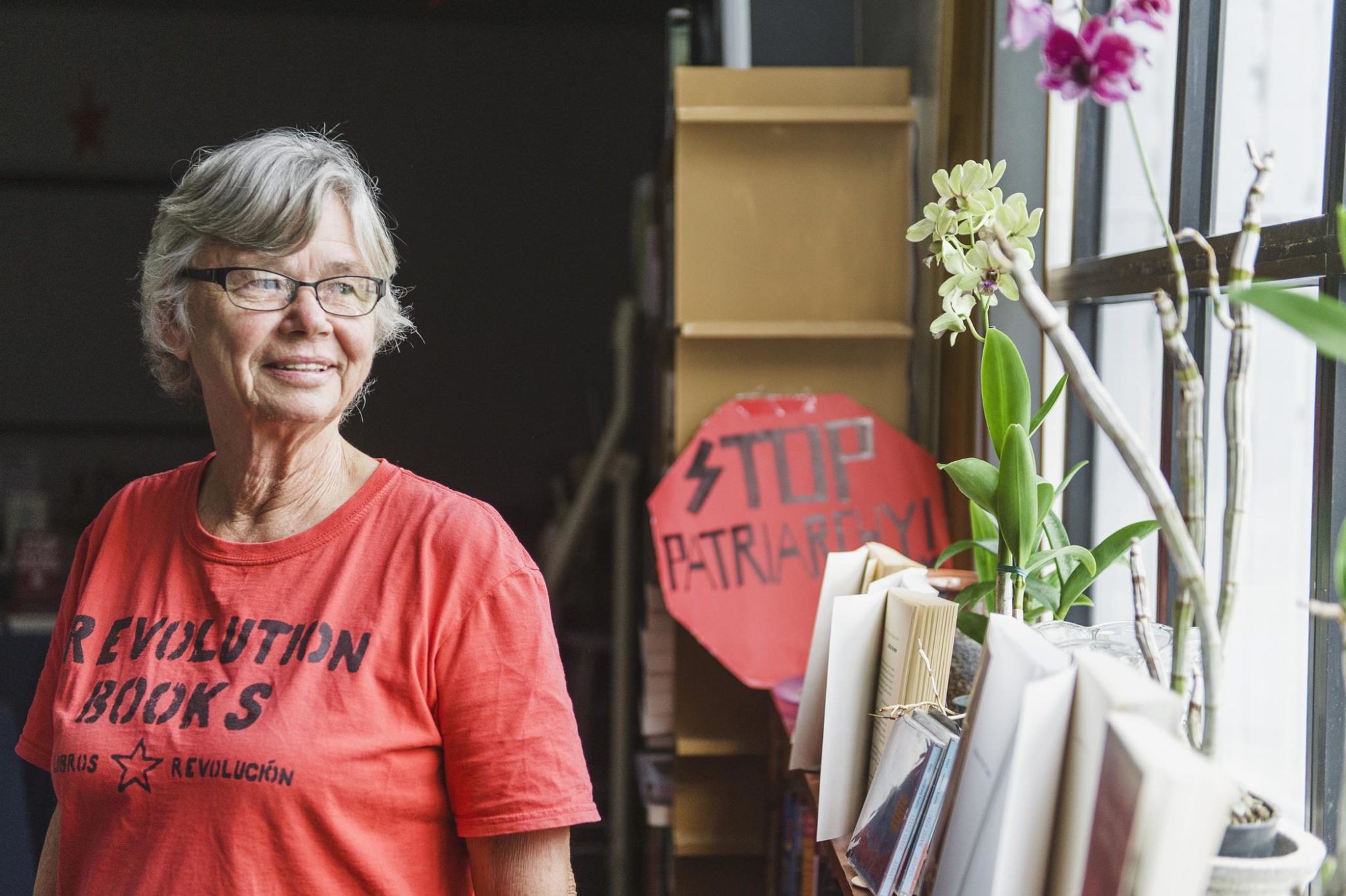The story of Carolyn Hadfield, the once general manager of Honolulu’s now defunct Revolution Books.
Outside, in Honolulu, the day is gray and muggy. Wai‘alae Avenue, right before it splits into King Street and Beretania Street, flows with traffic. On the corner, a college-aged man is dressed like the Statue of Liberty and dances without thought, his slippered feet shuffling, a large sign draped around his neck that proclaims, “GET CA$H NOW.” Less than a block away, inside a second-story bookstore behind a 7-Eleven, Carolyn Hadfield dreams of a revolution that would render all need for money obsolete, a world in which all people would truly be equal. In her early 70s, she has the soft curves and quick smile that are trademarks of all the best grandmothers, and the zest of a young dissenter.


We are seated at a round table within Revolution Books. The room is wide and long, with paperbacks and hardbacks propped up and stacked on tables and lining the walls. Red stars hang from the ceiling and in the front window.
It is what you would call a politically oriented bookstore, promoting materials from the Revolutionary Communist Party, USA (RCP), but Hadfield explains that while she, the general manager, is a member of the party, there is no clear association between it and the store.
Founded by a group of people in 1976, Revolution Books stands more for the idea that “knowledge is power” and the importance of dissent, regardless of the party in charge. Books you might find here include Round House by Louise Erdrich, the focus of the upcoming fiction book club; This Changes Everything: Capitalism vs. The Climate by Naomi Klein; BAsics, a book explaining the stances of the RCP by founder Bob Avakian (a poster of its cover also hangs on the wall). The shop’s website “about” page declares the store “alive with defiant spirit.”


While Hadfield worked as a teacher and principal of an alternative school in the ’70s and ’80s, and held other odd jobs thereafter, she also volunteered at the bookstore. Now that she’s retired, she’s taken one of four regular volunteer staff roles. As I ask her something along the lines of, “So, communism, huh? Why?” Jon Lennon’s “Imagine” starts playing over the speakers. It’s from Hadfield’s personal playlist.
“The thing that spoke to me is actually a vision. That’s ironic that you have ‘Imagine’ coming on,” she says before pausing, and I can’t tell if she’s going to choke up. “Because that’s pretty much it: a vision of the world where there actually aren’t divisions between people or countries, and people can actually relate in a liberating way.”
Revolution Books, she says, acts as a sort of center for customers that span all walks of life, from academics to military members to book nerds to those who want to connect with like-minded people.
“We’re building for revolution in the United States,” she says of the shop. “But you know, it’s a general bookstore. The books we choose are books that help people understand the world.” There are poetry readings, book openings, movie nights. One volunteer, who is an elder at a church, arranged a reading by local poet Brenda Kwan.


A little after 11 a.m. (the store officially opens at noon) the phone rings. Hadfield breaks from explaining how she moved to Hawai‘i from California (to attend University of Hawai‘i at Mānoa in the early 1960s, earning a bachelor’s in educational foundations) and came to side with communist theory (the Vietnam War, women’s oppression, the finger pointing at imperialism and capitalism) to answer it. “Revolution Books,” she says. After a brief discussion, it turns out they don’t have the title. “You’re best bet is Amazon,” she tells the person on the other end of the line. “But I hate to say it.” She returns to her seat next to me.
“In the ’60s, there were about six parties calling themselves communist in Hawai‘i,” she says. “With various ebbs in the struggle, floundering around theory, a lot of them left. It’s hard to be a revolutionary in Hawai‘i.” Part of the problem was the lack of a perceived critical mass. What kept Hadfield here, she says, is theory, and the people she had come to know. “Theory helped me understand that there’s really no quick fix, that reform isn’t going to do it,” she says. “That the problem is very systemic, and it’s in capitalism itself.”
These days, she takes part in weekly discussions about the Revolutionary Communist Party’s newspaper. She reads. She attends protests. She applies theory to the news. She gardens.
“I just have a regular life. I have kids, I have a family, I have all of that. I try to eat fairly well,” she says. “I think always I’ve been very integrated into the community. I go to the same movies, you know. Sometimes my kids have had to say, ‘Oh, I don’t want to hear your analysis.’ They’re very supportive of me, but they do things their own way.”
Revolution Books closed in 2016.

